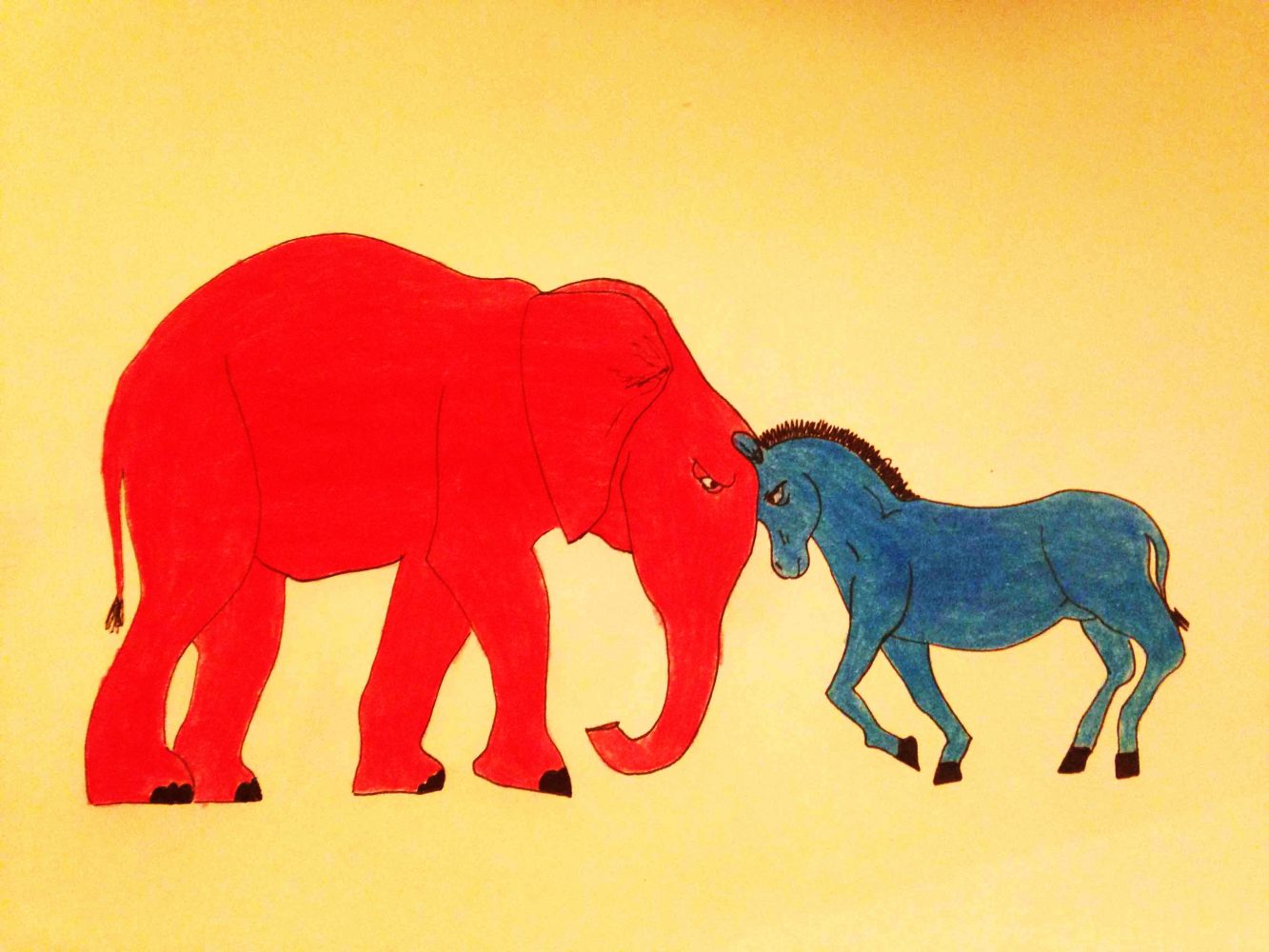Primary watch-parties to promote discussion
After months of debating, polling and campaigning, one of the longest—and arguably strangest—election seasons in recent memory is approaching a pivotal point: the primary elections.
In order to get students more engaged and informed about this part of the election cycle, the political science department will be holding various watch parties, where all members of the SLU community can gather for a political discussion.
“Elections are the most exciting events within American politics and are a great avenue to bring students together to discuss, debate and learn about politics,” said Dr. Steven Rogers, an assistant professor of political science.
The first watch party will take place on Feb. 1, the day of the Iowa caucus, at the Center for Global Citizenship. The party will open with a brief presentation by a political science faculty member on topics like how caucuses and primaries work, which can be a confusing concept for those who haven’t participated in an election before.
“Instead of having presidential candidates be determined by party bosses in smoke-filled rooms, the primary system intends to give voters more influence over who will occupy the White House,” said Rogers.
According to Rogers, the process works like this: by voting in primaries and caucuses, voters help determine how state parties allocate delegates to the national conventions. In order to win his or her party’s nomination, the candidate needs a majority of delegates.
“Rules regarding how delegates are allocated vary across the parties and states. For example, some states have primaries, some have caucuses, and others have both, and each party has non-elected super delegates,” Rogers explained. Students will receive a more detailed explanation at the watch party.
After the presentation, results will be streamed live from CNN, Fox News and MSNBC on the CGC’s big screen.
Roger’s emphasized the importance of participating in the primary elections, citing its affects on how the winner will shape federal policymaking for the next four years.
“On the Democratic side, Bernie Sanders and Hillary Clinton have differing priorities in terms of health care and taxes, and on the Republican side, immigration reform will look very different under a President Trump versus a President Bush,” Rogers said.
In addition to debate and dialogue, the watch parties will also provide attendees with a means to register to vote.
By providing this service, Rogers hopes that it will combat the lack of voter turnout among college-aged citizens.
“Youth turnout in more recent elections has been at its lowest levels in the last 40 years—but it is important to recognize that it has always been quite low,” Rogers explained.
He continued, “In 2014, 76 percent of 65 to 75-year-olds were registered to vote compared to 42 percent of 18 to 24-year-olds. These differences are well known to lawmakers when they are making decisions to either save social security versus provide student debt relief.”
The deadline to register in Missouri for the primary preference election¬—which is more like a poll—falls on Feb. 17, with the date of the election being March 15. The date to register for the actual primary election is July 6 and the election will take place on Aug. 2.
The department has also invited representatives from each state political party, as well as presidential campaigns to distribute information about their candidates. Representatives from SLU’s College Republicans, College Democrats, Student Government Association, Rainbow Alliance and Political Round Table will also have the opportunity to set up tables at the event and inform students about their organizations.
Roberts explained that one of his favorite parts about being a political scientist is researching the phenomenon that he saw while working on the campaign trail, and he hopes to pass on a similar enthusiasm to his students.
“I want students to walk away from the watch parties more excited about politics and wanting to know more about how political science can explain politics.”






